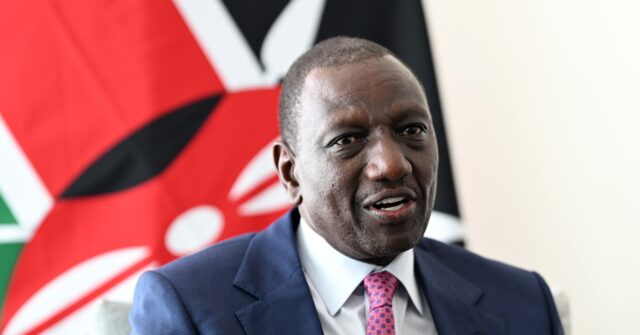Donald Trump’s election victory in the U.S. has reverberated across Africa, capturing headlines and sparking reactions from various leaders. Overall, the sentiment appears to be cautious optimism, with many African leaders expressing a desire to engage with Trump’s administration even while acknowledging concerns about his previous policies and statements. For instance, Kenyan President William Ruto lauded Trump’s “visionary, bold, and innovative leadership,” with similar sentiments echoed by Nigerian President Bola Tinubu and South African President Cyril Ramaphosa. These leaders anticipate a productive relationship moving forward, highlighting a collective eagerness for collaboration under Trump’s new term.
However, not all reactions were positive; some leaders voiced worries about Trump’s past actions, particularly concerning trade and climate policies. Seychelles President Wavel Ramkalawan articulated apprehensions about the climate crisis and its implications if the U.S. were to withdraw from the Paris Agreement again. He questioned Trump’s stance, recalling how the former president labeled climate change a “big hoax.” This raises concerns about potential regression on international climate efforts, especially given that many African nations have long held the perspective that climate change disproportionately originates from Western industrial practices, thus arguing that the responsibility for addressing the crisis should fall largely on the developed nations.
A key issue for many African nations is the fate of the African Growth and Opportunity Act (AGOA), which is set to expire in 2025. This act has allowed for duty-free access to U.S. markets for a significant range of African exports. The legislation comes with stipulations that require participating countries to show progress in terms of market development and democracy. The Africa Export-Import Bank has quickly engaged in lobbying for the renewal of the AGOA, spending considerable resources to influence Trump’s administration. The strategic importance of the AGOA is underscored by the apprehension that non-renewal could adversely impact local economies reliant on trade with the U.S.
Despite the uncertainty surrounding AGOA, some leaders are hopeful that Trump could offer a refreshing departure from the perceived arrogance of the Biden administration. Ugandan parliamentary Speaker Anita Among expressed her belief that with Trump in power, there would be no intimidation to change her stance, especially in light of the sanctions imposed by Biden’s government due to human rights violations in Uganda. This reflects a broader sentiment among leaders who see the potential for a more favorable relationship, particularly in areas that have historically seen tensions.
The darker implications of Biden’s sanctions, targeting specific officials and exacerbating existing political challenges, are contrasted with hopes for a more approachable U.S. administration. Trump’s prior threats of expelling certain nations from AGOA over trade disputes highlight a complex dynamic where African leaders must navigate the delicate balance of maintaining valuable trade agreements while managing diplomatic relationships with Washington. Many view Trump’s transactional style as potentially more aligned with their interests than Biden’s approach, which has been marked by moral judgments on governance and human rights.
Overall, while there exists a palpable sense of apprehension regarding Trump’s policy directions, the African leaders’ responses indicate a readiness to engage and explore new opportunities. The looming question of AGOA’s renewal, the potential for change in U.S. trade and foreign policy, and ongoing concerns regarding climate change are crucial for African nations looking to chart a path forward under the new administration. As African leaders express their hopes and anxieties post-election, it becomes clear that the future of U.S.-Africa relations hinges on how these developments unfold in the coming years.

